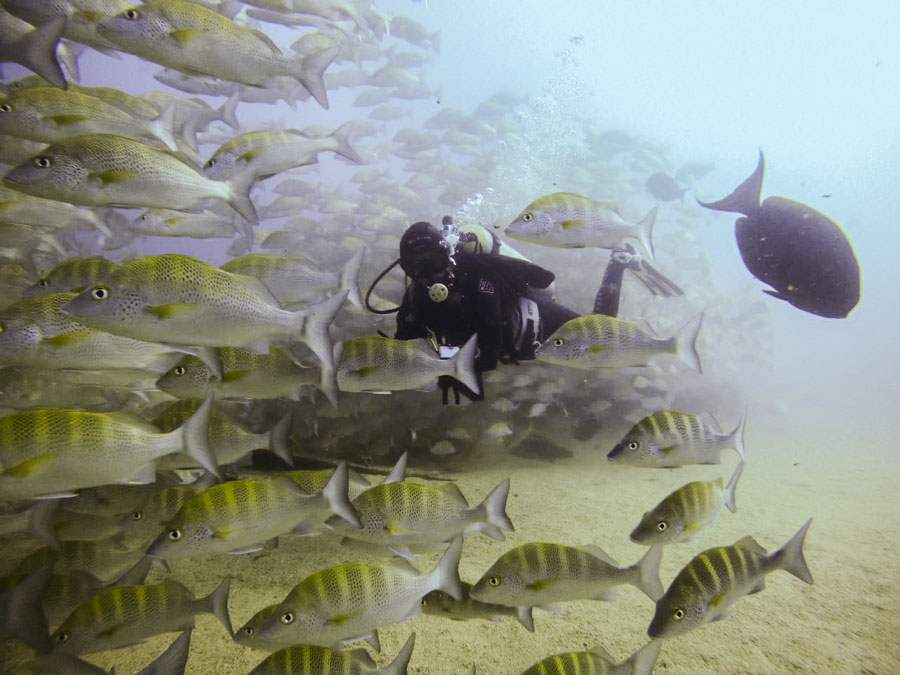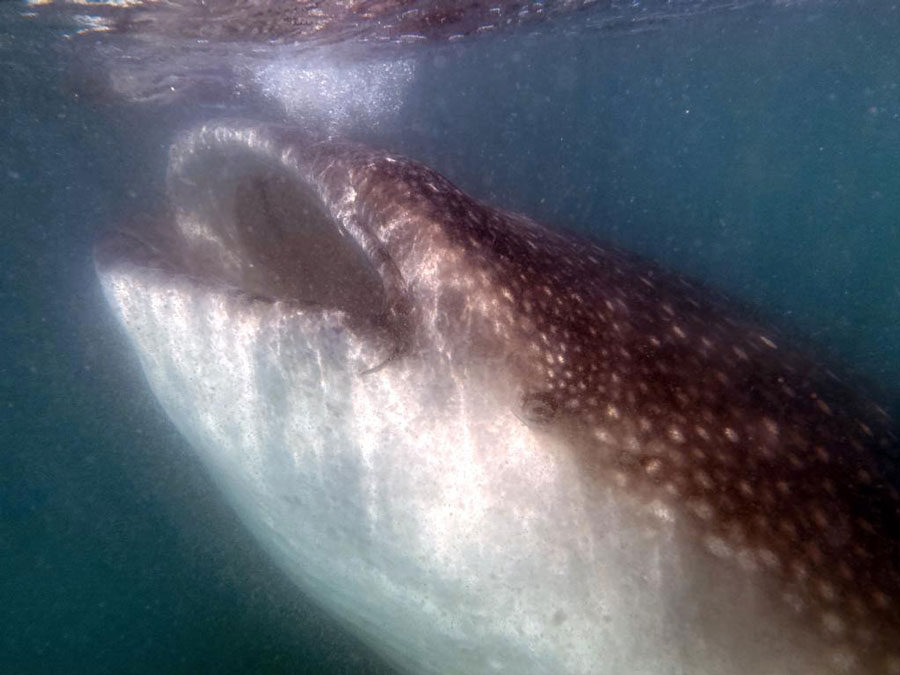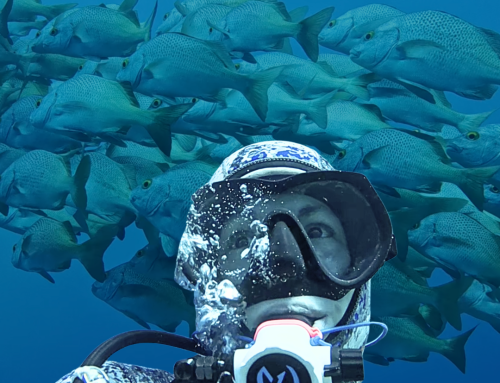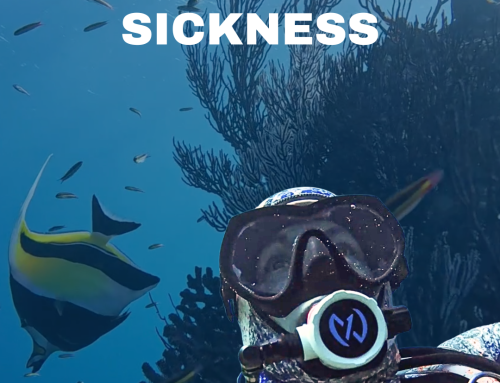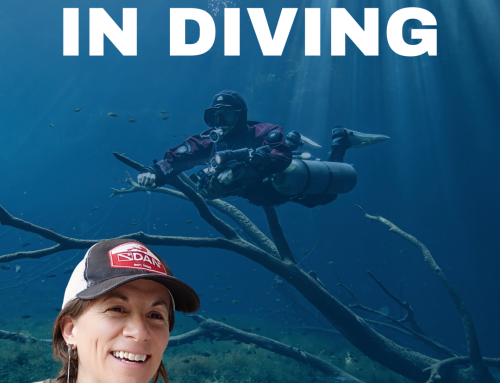I met up with Jow from Be Diving, which is the Nex Underwater Products distributor in Mexico. His dive shop is located in Playa del Carmen and we had been talking about a meetup for a handful of months. He set up this photoshoot day to highlight Nex gear, specifically their sidemount equipment, with the talented photographer Carolina Wells. If you want to see more about these two, I’ve linked both of their business information in the description below.
We packed up all our stuff, grabbed tanks, and hit the road to make some magic in Cenote Carwash.
Diving and insecurities
I joked about being sweaty for photos, but when we set up for land photos with Carolina, I suddenly got a little self conscious. I had just thrown my hair into my normal diving braid wearing no make up and assumed I would just hide my discomfort at being in front of the camera behind my mask and regulator. I always see these beautiful women with perfect hair, in full make up, and dive gear for brand photoshoots.
Honestly, I’m impressed with anyone who can look that put together in dive gear, but also, that just isn’t me. I haven’t owned make up in something like 8 years, so I shook off that doubt and let myself smile through the insecurities.
I feel like this is a broader industry issue of always using ‘model-type’ people to promote scuba and that just isn’t the demographic. All of us are so different and if we want the industry to be open to more people we have to show a variety of body types, skin colors, and unique characteristics. Something that Caro the photographer said is she loves shooting people with the mask lines on their faces and natural hair because it shows the reality of diving.
I say throw some snot in there, and you have the full picture, but that may not sell very many masks.
Game plan for the photoshoot dive
Caro made a plan to shoot in open water and parts of the cavern. Carwash is a really great cavern for anyone hoping to visit a cenote, but unsure about the whole cavern situation. There’s a lot of beauty to the open water area with underwater plants and schools of fish. There can also be different colors in the water based on the prevalence of rain. There are plenty of formations to enjoy inside the cavern, and the light pouring in from the open water area really sets the scene.
After shooting some fun photos in the open water area, we followed the cavern line into our first backshot spot.
How to do a backshot while diving
A backshot is when you put divers in a line from camera person, model to light person. The person at the back shines a bright light behind the model, and the photographer shoots pointing straight at the model and the bright light. If done correctly, only the model will be seen since the backlight will block the person holding it. The main challenges with making this successful are model/light placement and synchronizing the breath.
Carolina really made Jo and I feel comfortable in front of the camera. I was impressed with her clear directions and attention to detail, making sure all clips and tanks were in the right place. Besides the knowledge, practice, and equipment, that awareness is something that distinguishes great photographers and videographers.
Gear recommendations for underwater photography and videography
Carolina shared that if you’re interested in getting into photography, the best investment you can make is working on your buoyancy and back finning. She says that she sees people spend way too much money on expensive cameras before they even try taking pictures underwater. She recommended getting a small, versatile camera like an Olympus G-6 and to start practicing the skill.
As far as videography, I agree with Carolina and I always say, start with what you have. The key is to practice. When I started shooting video, I just had a GoPro 8 and no lights. Eventually, I moved up and invested in one beefy 15,000 lumen video light (which I don’t necessarily recommend for people). I think the better move is to get 2 lights, even if they’re smaller. I’d recommend 7,000 lumens or up. Then I moved on to a GoPro 11 out of necessity (I flooded my 8), and I still use that for any wide angle shots. Then, last summer, I got a housing for my vlogging camera, which is a Sony ZV1, and that’s the one that has allowed me to get more macro shots. The GoPro is trash at macro (it can be better with the macro lens adaptor, but it’s simply not made for shooting small things).
The Sony works fine for me, but I’m definitely using it as an intermediate step to continue learning about videography before investing in a dedicated underwater camera setup. Right now it’s kind of a pain in the butt because I’m shooting topside and underwater footage with the same camera, and the Sony ZV1 doesn’t have a great battery life for video shooting, so I’m constantly changing out batteries.
Being a model is hard work
I didn’t think the day’s activities would be as tiring as they were! Assisting a photographer with lights and being in front of the camera modeling is hard work. You need good buoyancy control, understand the direction the photographer is giving you, and make small, slow adjustments so the photographer can get the shot. Not to mention doing several takes of different movements to capture just the right moment.
I had so much fun on these dives and am hoping to dive with these two again in the future…
And even though I was totally wiped, I finished the day with a livestream for my Patreon supporters. If you want to get in on these types of extras, check out the different tiers and join my rad community of divers.
Join me on upcoming Azul Unlimited dive expeditions
See what trips are coming up. I always give my community first dibs on spots, so you can sign up for Patreon (and get trip discounts) or my email list to be the first to know about new expeditions in the future.
